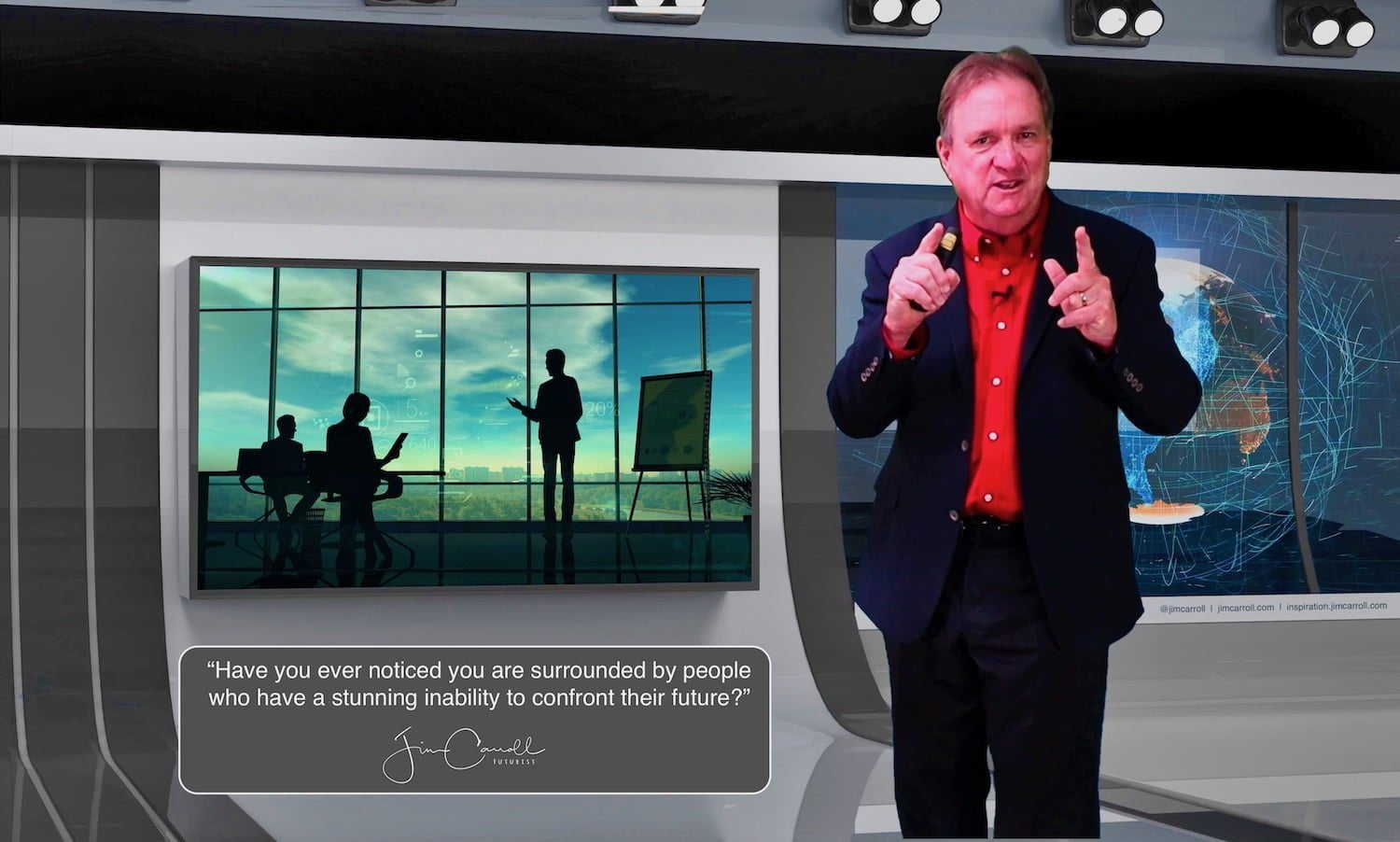“Have you ever noticed you are surrounded by people who have a stunning inability to confront their future?” – Futurist Jim Carroll

“It’s not you – it’s them!”
I’ve been working on identifying many of the trends that will define our post-pandemic future – we know we aren’t going back exactly to where we were before we were so rudely interrupted. One of the most significant is one that I was talking about pre-pandemic – the schism in society between those who were aligned to, and accepting the future, and those who are not. I believe we will now see a real economic impact for regions with low vaccination rates – what company is going to want to entrust future workforce investments to regions that will face an ongoing increase in healthcare risk and cost?
But it’s not just that. Clearly, the era of oil is over as we head into the world of renewables; cars based on gasoline are now from the olden days, while electric cars are clearly the dominant future. Brute force manufacturing skills are increasingly irrelevant; advanced skills are ascendant. Yet, what happens to those economic regions where people choose to turn their back on the future?
In the past, I often very carefully took on this issue from the stage with a bit of showmanship, by framing it in the context of the “Jetsons vs. the Flintstones.” That’s because this trend is not necessarily new: over the years, I have come to realize that while the majority of my audience appreciates a whirlwind ride into the future, there are others who just wish the future would go away. But now, vaccine-denialism (I refuse to call it hesitancy) is beginning to lay bare the future economic weakness of entire regions. Who might want to invest in Arkansas, Mississippi, and other regions going forward, when workforce unreliability driven by waves of illness will be a major trend going forward?
Dislike of the future? A refusal to accept the reality of trends? Science denialism? I used to worry and obsess over this challenge, often leaving a stage wondering why I wasn’t able to get through to everyone. Then years ago, I realized that no matter what I do, there will always be a core group that prefers the status quo. They fall prey to the sentiment of Ogden Nash: “progress is great, but it’s gone on way too long.”
The image below best captures the nature of the challenge!
Leaders today must steer their organization into a fast-paced future — through the shoals of disruption, the emergence of new competitors, technology, automation, and other challenges — while understanding that there is a core group that will do little to embrace that change. Consider what is happening with the acceleration of the automotive industry: self-driving cars, intelligent highways, prognostic self-diagnosing vehicles. The industry will be barely recognizable in 10 years! Cars tomorrow will be barely recognizable compared to what we drive today.
And yet, there remain folks who just refuse to participate in the inevitability of the future, and that can be a significant leadership, strategic challenge.
You are surrounded by such people. What’s your plan to deal with this fact?






GET IN TOUCH
Jim's Facebook page
You'll find Jim's latest videos on Youtube
Mastodon. What's on Jim's mind? Check his feed!
LinkedIn - reach out to Jim for a professional connection!
Flickr! Get inspired! A massive archive of all of Jim's daily inspirational quotes!
Instagram - the home for Jim's motivational mind!